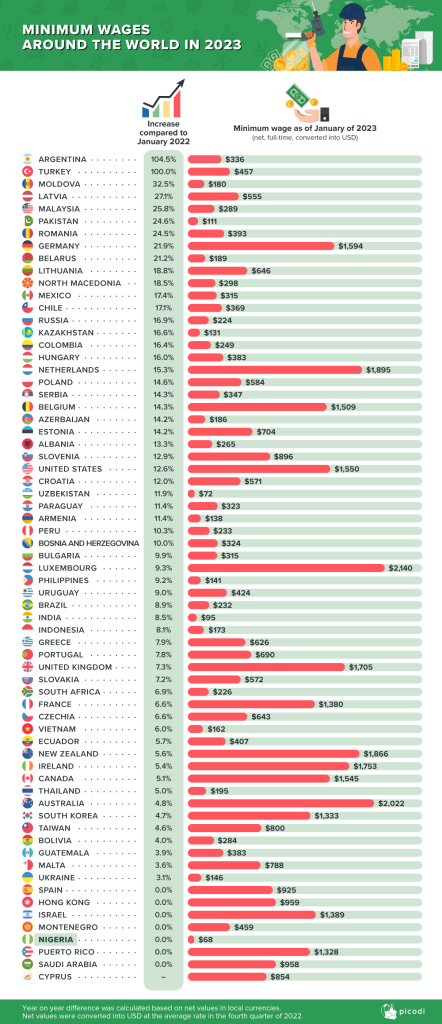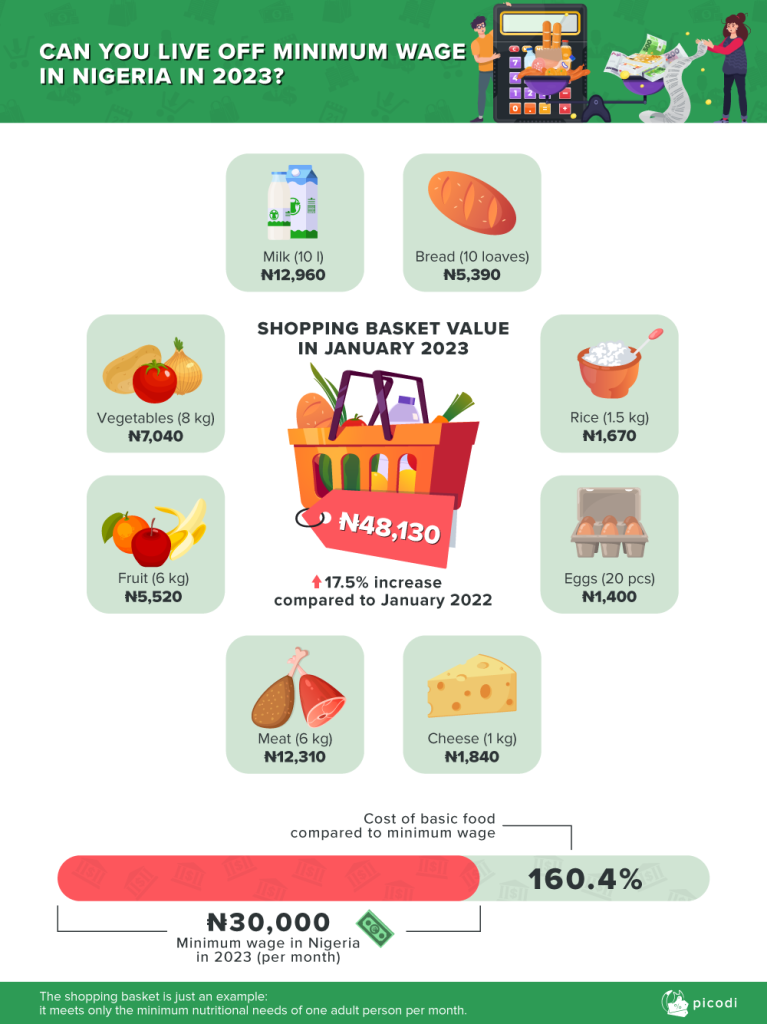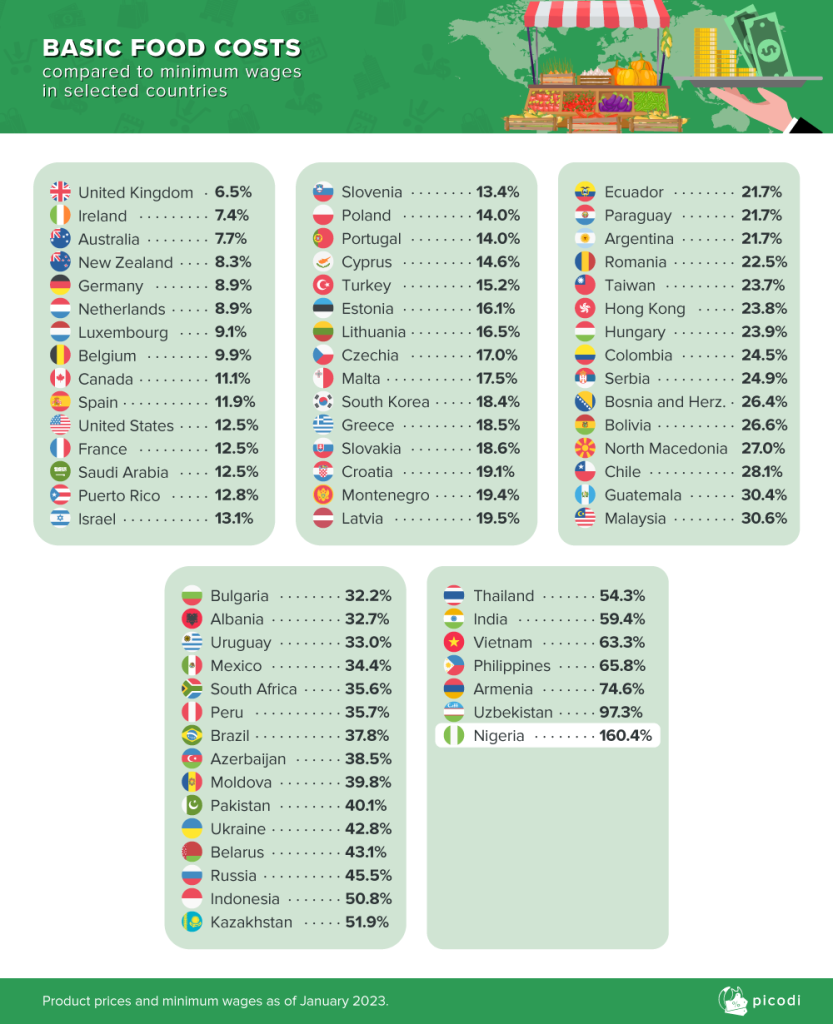Despite the rising inflation and falling economy minimum wage in Nigeria is ₦30,000. With ₦30,000 Nigerians can barely afford a three square meal, raise a family or afford to have a good life.
Minimum wage is the lowest remuneration that employers are legally permitted to pay their employees.
Picodi.com analysts examined how the minimum wage changed in several dozen countries in 2023 and whether such a wage is sufficient to ensure a minimum standard of living in those countries.
The study includes 67 countries where the government sets the minimum wage. The tax systems in these countries vary greatly, and the difference between gross and net income can range from 0% to 35% (0% in Nigeria).
Net wages, which are the actual earnings of employees was used in the comparison.

Nigeria ranked 60th in terms of salary increases: the minimum wage has not changed since 2022. High pay increases are available to those paid the least in countries such as South Africa (6.9%) and the United States (12.6%).

A basic food basket in Nigeria costs 48,130 at the start of 2023, which is 17.45% more than last year. The basket is worth 160.4% of the minimum net wage, up from 136.6% of the current minimum wage in 2022
This means that the wages of the lowest-paid workers increased slower than food prices, and the minimum wage is insufficient to cover even such a basic basket of goods.
This is how the price of an identical shopping basket in previous years:
January 2019 – ₦31,536
January 2020 – ₦32,420
January 2021 – ₦35,360
January 2022 – ₦40,980
January 2023 – ₦48,130
Where can you live off the minimum wage?
Although food preferences and perceptions of a comfortable life differ from country to country, and even from person to person, we decided to compare the prices of the same basket of food with the minimum wage to see how much of the minimum wage must be spent on necessities.

BizWatch Nigeria recalls that the Federal Government (FG) will on January 23, 2023 review the minimum wage for civil servants.













